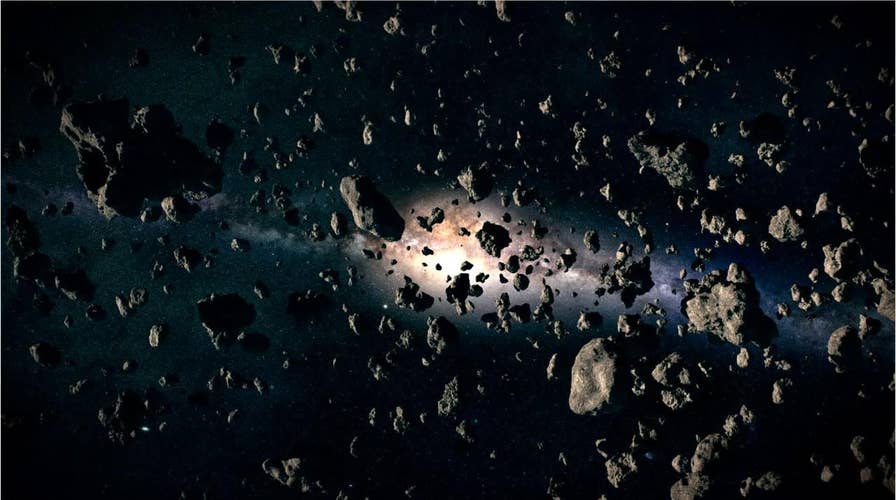Scientists: Mile-long asteroid could be dangerous to life on Earth in millions of years if it breaks up
The fire ball that passed over Japan in 2017 is linked to a mile-long asteroid. Scientists now believe that the asteroid, known as 2003 YT1 could break up and harm life on Earth.
A massive mile-long double asteroid linked to a one-inch meteor that streaked a fireball over Japan three years ago could threaten humanity in millions of years if it eventually breaks up, scientists wrote in a report published Monday.
"The potential breakup of the rock could be dangerous to life on Earth," Toshihiro Kasuga, a visiting scientist at the National Astronomical Observatory of Japan and Kyoto Sangyo University, said in a release Wednesday, according to CNET. "Those resulting asteroids could hit the Earth in the next 10 million years or so."
The findings were first reported in The Astronomical Journal Monday.
The fireball that passed over Kyoto, Japan, late at night on April 28, 2017, was a one-inch meteor that broke off the asteroid measuring more than a mile wide, scientists later determined, according to Live Science.
COMETS MAY HAVE DELIVERED 'ESSENTIAL ELEMENT' FOR LIFE ON EARTH, RESEARCHERS SAY
"We uncovered the fireball's true identity," Kasuga said, according to CNET. "The 2017 fireball and its parent asteroid gave us a behind-the-scenes look at meteors."
The asteroid, known as 2003 YT1, is made up of two parts: the larger rock measures 1.2 miles and is orbited by a 690-foot piece.
“The parent body 2003 YT1 could break up and those resulting asteroids could hit the Earth in the next 10 million years or so, especially because 2003 YT1 has a dust production mechanism,” he added, the Daily Express reported.
The asteroid was first discovered in 2003, hence its name.
CLICK HERE TO GET THE FOX NEWS APP
It has a history of cracking and releasing dust particles into space, The Express reported.





















